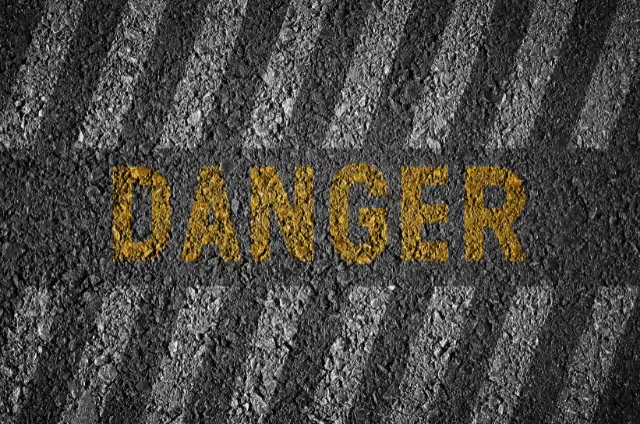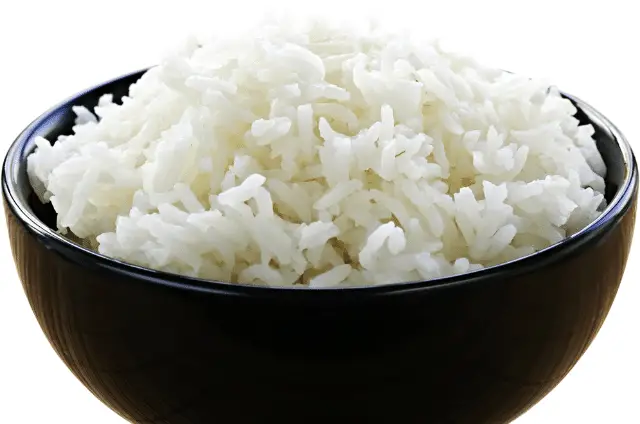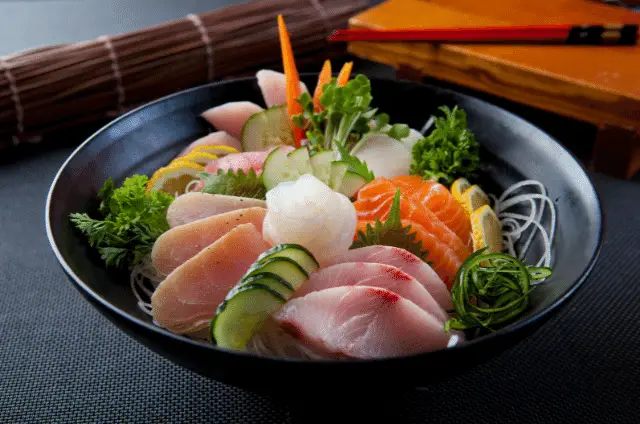We’ve all been there. After a long day, you decide you don’t want to cook, so you order out for some quality Chinese food. But, after you’ve had your fill, you forget about all those white boxes lining the counter as you lope off to bed, accidentally leaving your tasty food out overnight. Or maybe you’re questioning whether putting it all away is worthwhile.
Chinese food should not be left out overnight. The safest way to prevent your favorite fried rice and Mongolian beef from spoiling is to eat your fill and then store the leftovers safely in the fridge within 2 hours after it was cooked. Otherwise, you risk significant growth of bacteria that might lead to health risks, such as food poisoning. (check it out: 6 Best Ways to Store Chinese Food Leftovers)
Most Chinese foods, especially takeout, are perishable and therefore, unsafe to leave out for extended periods of time. So, apart from the fortune cookie and fried wonton sticks, all cooked foods should be safely stored in a refrigerator or freezer. There are some common Chinese foods that are riskier than others, so be aware of these before you try to be a daredevil and risk that first-morning bite.
Can Chinese Food Sit Out Overnight?
Whether you ordered takeout or prepared an authentic Chinese meal yourself, it is not recommended that you eat Chinese food that has been left out for an extended period of time.
There are a series of factors that go into food safety, such as how long the food has been left out and the safest temperatures for storage. Here are some food safety guidelines to ensure that you don’t end up wasting your favorite Chinese food and, more importantly, your money.
The 2-Hour Rule
It is a common rule established by the Food and Drug Administration (FDA) that all perishable foods should not be left out for more than 2 hours in order to reduce the growth rate of potentially harmful bacteria.
However, if the food is left out in temperatures above 90 degrees, it needs to be safely stored within one hour.
The Danger Zone

There is a temperature range that the FDA regards as the “danger zone” where bacterial growth occurs most rapidly in food.
This range is 40 degrees Fahrenheit to 140 degrees Fahrenheit. Considering standard room temperature is 68 to 76 degrees Fahrenheit, any food left out in the typical household is sitting in “danger zone” temperatures.
Hot Vs. Cold
There is a slight difference in how you can treat hot food versus cold food. If your Chinese takeout arrives and you aren’t quite ready to eat it, the wisest decision would be to cover the food.
Then put the food it in the oven at temperatures above 140 degrees Fahrenheit to keep it warm rather than leaving it out and reheating it later. Although reheating can kill some bacteria, it will also negatively affect the flavor and texture of your food.
If your food arrives cold, it should still adhere to the two-hour rule and needs to be stored at temperatures below 40 degrees when you are not planning to consume it.
If you are planning to eat food that was previously frozen, either defrost the food in a microwave or defrosts it in the fridge over the course of potentially 6-8 hours. Do not leave frozen food out overnight to be used in the morning. Bacteria can grow and multiply in thawing food just as it does in cooked foods.
I Ate Chinese Food Left Out Overnight. Will I Be OK?

We get it. You posed a question on an internet forum that was along the lines of “I left my Chinese food out overnight. Can I still eat it?” and the typical reply was, “Sure! Just toss it in the microwave.”
But now, 20 minutes later, you’re questioning if you should’ve listened to that one person who replied with “It isn’t worth it”. And in modern-day fashion, you’re now frantically searching google, wondering what’s the worst that could happen? You’re probably having tummy troubles from the worry already.
It’s true that the average human’s immune system is pretty resilient, and after killing off some of the bacteria in the microwave, you might be fine. But why risk it? Your microwave might save you if you left your food out for 2-4 hours, but it certainly won’t kill all bacteria that accumulate overnight.
When left out in unsafe temperatures, meaning the danger zone, bacteria in food can double in as little as 20 minutes. So, if you’ve left your Chinese food out for 12 hours, that’s 36 times that the bacteria is essentially doubling.
But what exactly are these oh so terrifying bacteria? Typically, they include Staphylococcus aureus, Salmonella Enteritidis, Escherichia coli O157:H7, and Campylobacter.
These bacteria will cause a myriad of nasty diseases from food poisoning, to salmonella, to staph infections, traveler’s diarrhea, and more. These will have symptoms that can leave your bed (or toilet) ridden for hours upon days. Common symptoms are dizziness, fatigue, vomiting, diarrhea, nausea, and abdominal pain or cramping.
So, the real question is if the money and time you saved by eating your leftover Chinese food that sat out all night are worth these highly uncomfortable diseases.
Most Dangerous Chinese Foods to Eat When Left Out Overnight
If you’re still considering eating that egg roll you left out last night, read this list of the most dangerous Chinese foods that are sure to cause unwanted illness if consumed after sitting out all night.
#1. Rice

That simple, cooked white rice might seem safe and unassuming, but it is actually one of the most dangerous staples of Chinese foods to eat after being left out overnight. Uncooked rice can be contaminated with spores of a bacteria called Bacillus cereus.
When left out for extended periods of time, these spores will grow into the bacteria, which is a frequent cause of food poisoning.
#2. Fish/Shellfish

Sushi and sashimi are common staples of Chinese cuisine and typically include rice and some form of fish.
This makes it a high-risk food, not only because of the rice but the protein as well. If fish is not stored at the proper temperature, either before preparation or after it has been crafted into sushi or sashimi, it has a high risk of being contaminated with histamine, a toxin potentially produced by a bacterium in the fish.
Consumption of this contaminated meat could cause scombroid poisoning, a nasty form of food poisoning.
There are a series of other foods, such as sprouts, vegetables, poultry, and eggs that, when improperly washed or insufficiently cooked, are also high-risk foods.
But once they are sufficiently cooked, most of the bacteria that could potentially cause illnesses are killed.
Make no mistake, though, if you leave these foods out overnight, the bacteria are certain to multiply, and you will once again be at risk of disease.
Final Thoughts
When it comes to your precious leftover Chinese food, it’s better to be safe than sorry. As previously mentioned, the immune system of most humans is pretty strong, so if the food were simply left out for 3 or 4 hours before turning in for the night, it would probably be safe to put it away and heat it up tomorrow.
However, if the food was left out overnight, it’s simply not worth the risk. Although food poisoning is not typically fatal, its symptoms and toll on your overall health isn’t a fair trade for finishing that lo mein.
